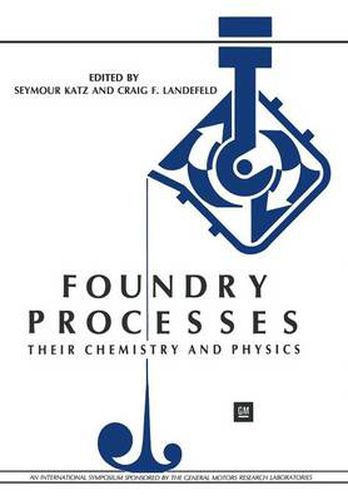Readings Newsletter
Become a Readings Member to make your shopping experience even easier.
Sign in or sign up for free!
You’re not far away from qualifying for FREE standard shipping within Australia
You’ve qualified for FREE standard shipping within Australia
The cart is loading…






This title is printed to order. This book may have been self-published. If so, we cannot guarantee the quality of the content. In the main most books will have gone through the editing process however some may not. We therefore suggest that you be aware of this before ordering this book. If in doubt check either the author or publisher’s details as we are unable to accept any returns unless they are faulty. Please contact us if you have any questions.
For a number of years it has been a General Motors Research Laboratories custom to hold a symposium on a subject which is new and emerging, and to invite the best people in the world in that subject to come together to talk to each other. Initially, I had some difficulty in regarding foundry processes as a new and emerging subject. Copper alloys have been in foundry practice for about six thousand years. Foundrymen working with those alloys have been recognized, as such, for nearly all that time. Iron has a much shorter history, probably only three or four thousand years. So what’s new? What is new is that a subject which has always been so complex and so difficult that it could only be a craft skill, with bits and pieces of knowledge and bits and pieces of insight, has begun to yield to new abilities to solve very complex problems. We do this now because we can handle great amounts of data by computational means, using new and more complicated theoretical treatments than we could deal with before. In fact, we have a new technology with which we can attack these terribly difficult problems. Thus, foundry processing is becoming a new subject because new things can be done with it.
$9.00 standard shipping within Australia
FREE standard shipping within Australia for orders over $100.00
Express & International shipping calculated at checkout
This title is printed to order. This book may have been self-published. If so, we cannot guarantee the quality of the content. In the main most books will have gone through the editing process however some may not. We therefore suggest that you be aware of this before ordering this book. If in doubt check either the author or publisher’s details as we are unable to accept any returns unless they are faulty. Please contact us if you have any questions.
For a number of years it has been a General Motors Research Laboratories custom to hold a symposium on a subject which is new and emerging, and to invite the best people in the world in that subject to come together to talk to each other. Initially, I had some difficulty in regarding foundry processes as a new and emerging subject. Copper alloys have been in foundry practice for about six thousand years. Foundrymen working with those alloys have been recognized, as such, for nearly all that time. Iron has a much shorter history, probably only three or four thousand years. So what’s new? What is new is that a subject which has always been so complex and so difficult that it could only be a craft skill, with bits and pieces of knowledge and bits and pieces of insight, has begun to yield to new abilities to solve very complex problems. We do this now because we can handle great amounts of data by computational means, using new and more complicated theoretical treatments than we could deal with before. In fact, we have a new technology with which we can attack these terribly difficult problems. Thus, foundry processing is becoming a new subject because new things can be done with it.